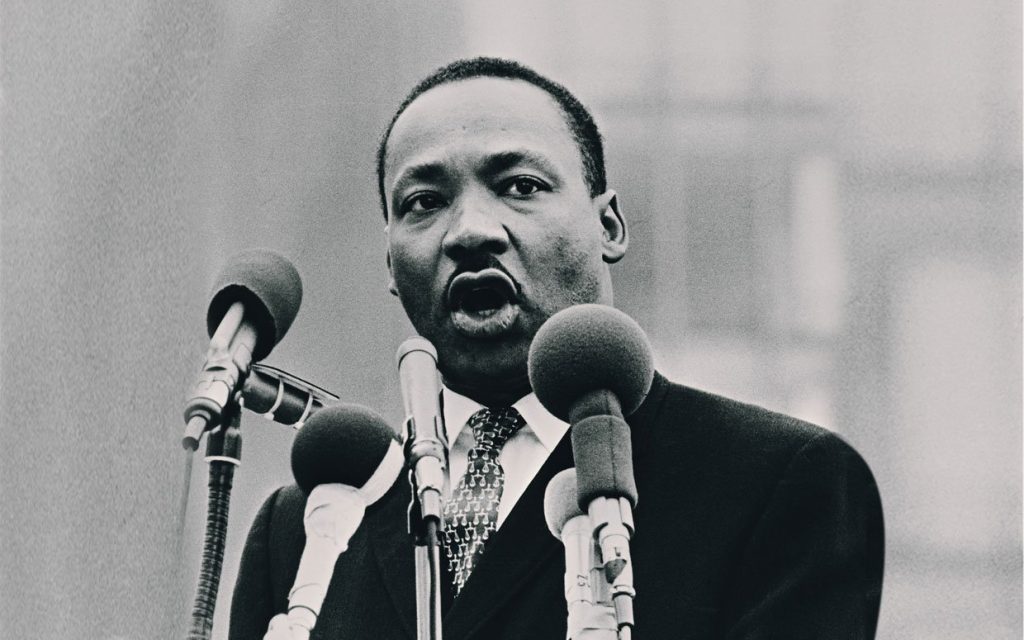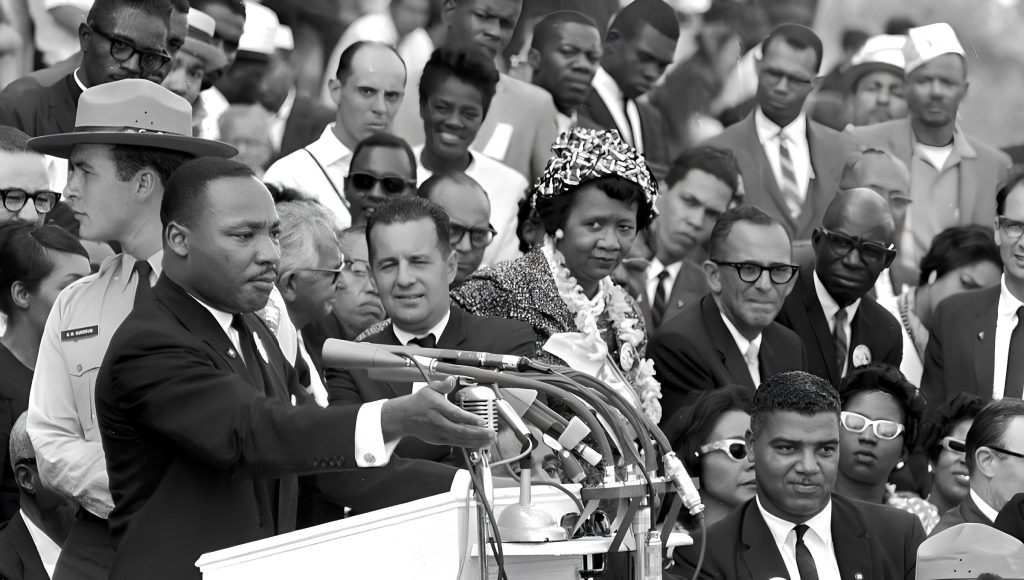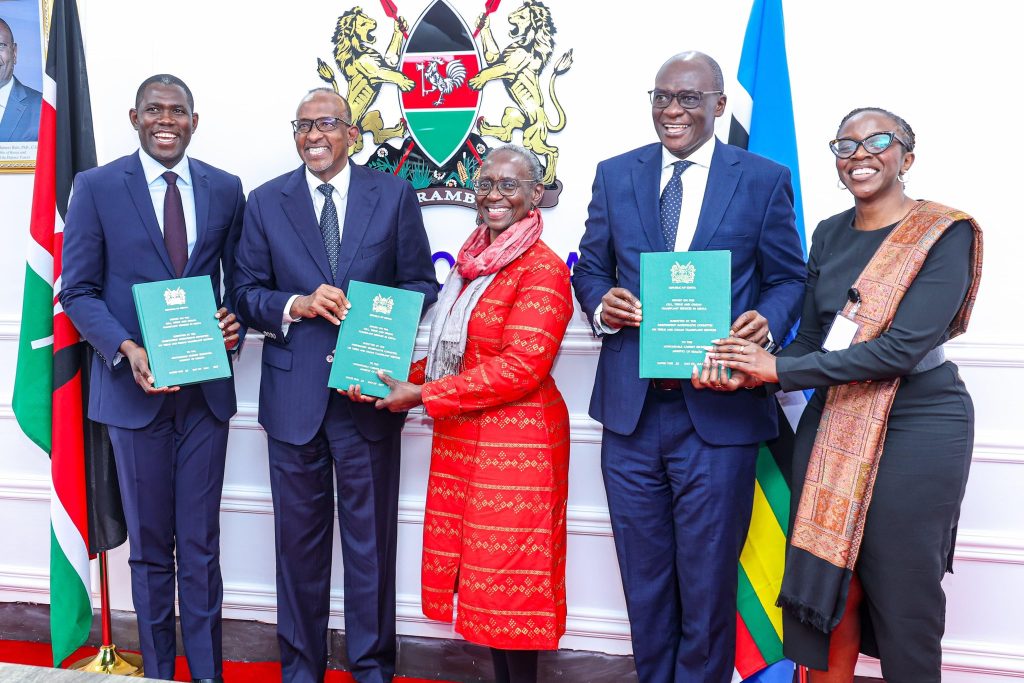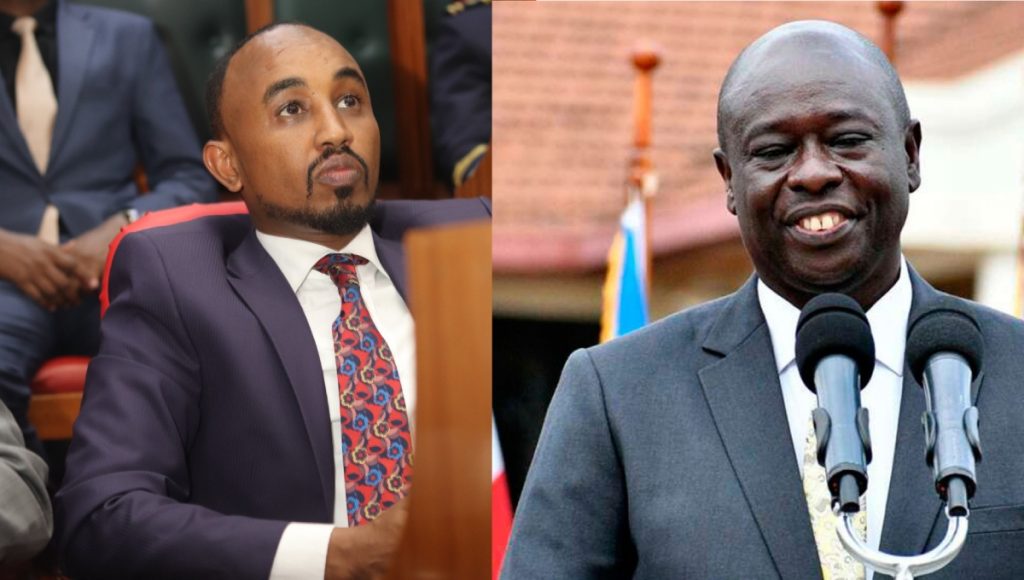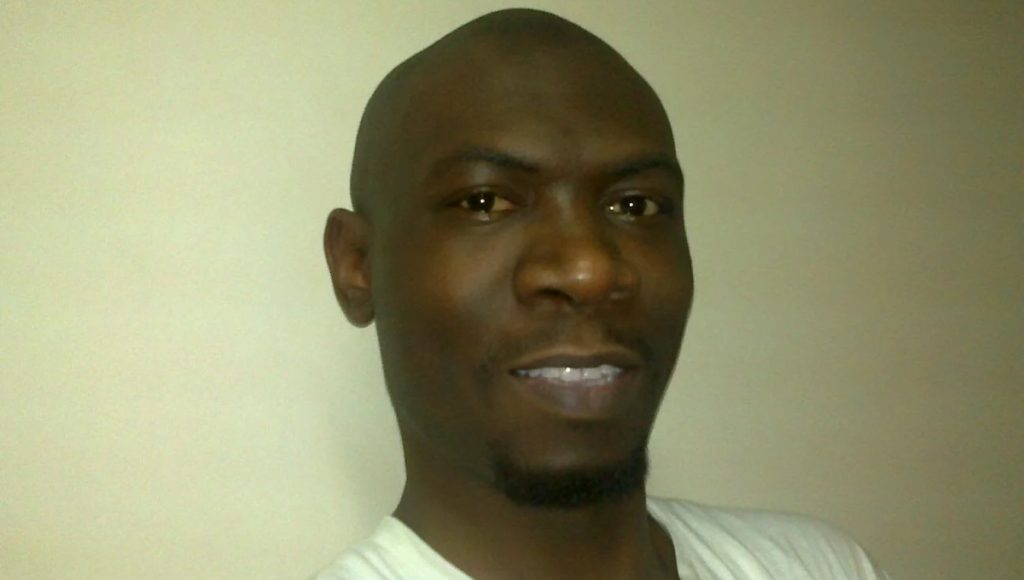U.S. President Donald Trump’s Director of National Intelligence Tulsi Gabbard has officially released over 230,000 pages of previously classified documents related to the 1968 assassination of civil rights icon Dr. Martin Luther King Jr., nearly 60 years after his death.
In a post shared on her X platform account, Gabbard stated that the American people have the right to know everything, emphasizing that the documents were released with only ‘minimal redactions for privacy reasons.’
“Today, after nearly 60 years of questions surrounding the assassination of Dr. Martin Luther King, Jr., we are releasing 230,000 MLK assassination files,” announced Gabbard.
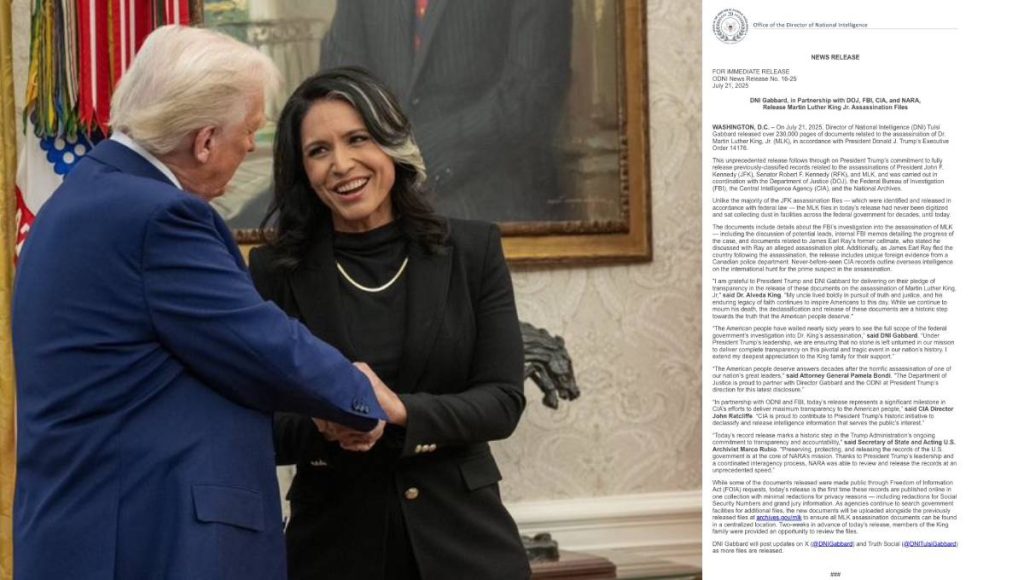
According to the intelligence Director, the released documents contain crucial intelligence gathered by the Federal Bureau of Investigations (FBI) during the past years.
“The documents include details about the FBI’s investigation into the assassination of MLK, discussion of potential leads, internal FBI memos detailing the progress of the case, information about James Earl Ray’s former cellmate who stated he discussed with Ray an alleged assassination plot, and more,” said Gabbard.
This major declassification although it comes 7 months after Trump signed an executive order on January, 23, 2025 to declassify any remaining files from the assassinations of former President John F. Kennedy, his brother Robert F. Kennedy, and MLK, it is one that has been waited for by very many Americans and other people across the world close to 6 decades.
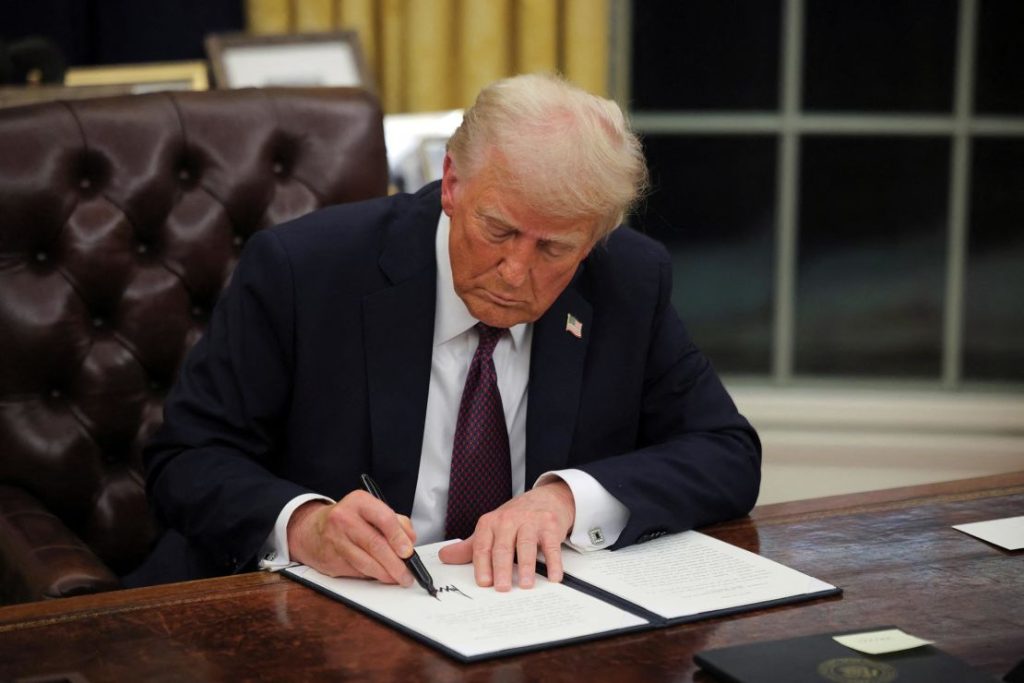
According to the Warren Commission which was in charge of conducting investigations into the shooting of John F. Kennedy, it revealed that the assassination was carried out by former Marine sharpshooter, Lee Harvey Oswald, acting alone.
This formal conclusion is expected to shed new light on one of the most controversial and widely debated assassinations in American history.
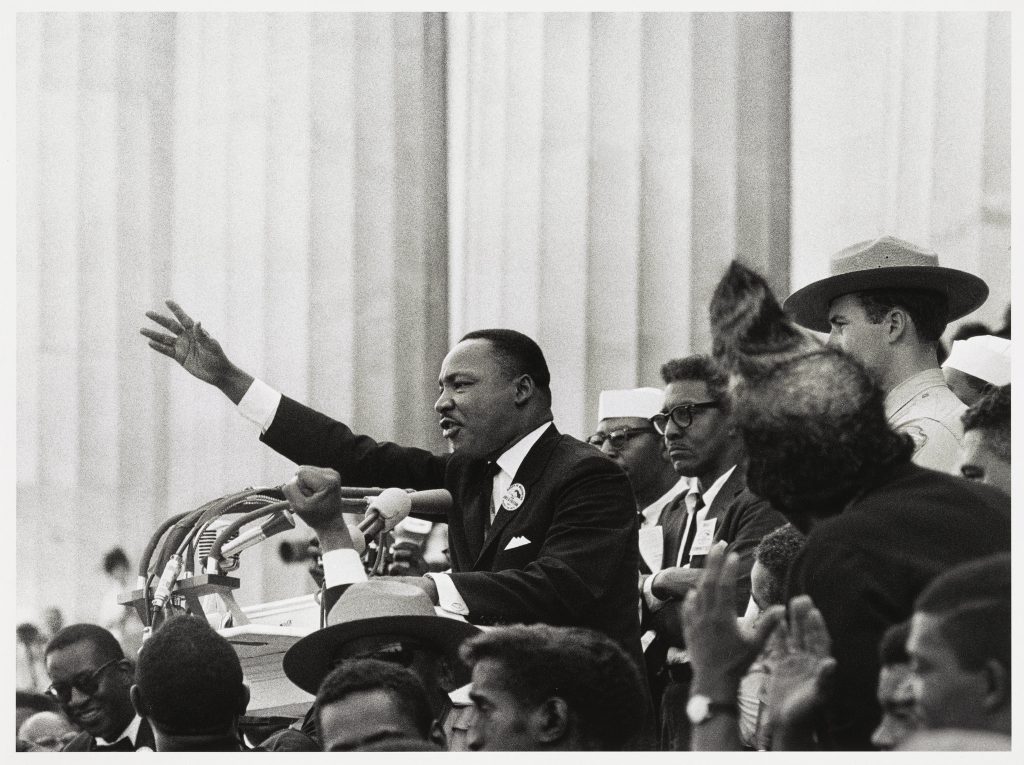
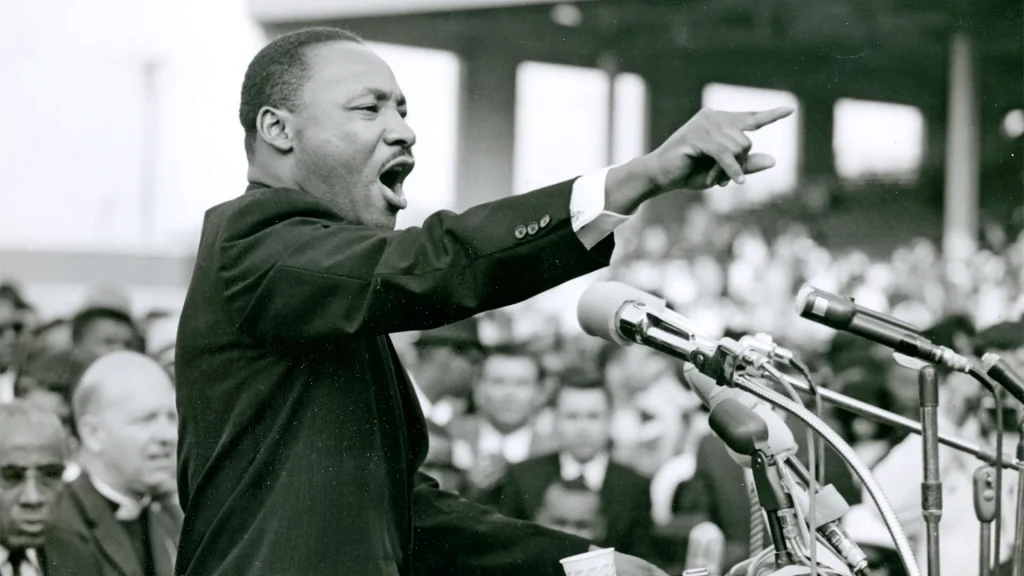
While the Warren Commission concluded that JFK was killed by lone gunman Lee Harvey Oswald, theories about deeper conspiracies have persisted for decades.
To date many remember him for the ‘I have a dream’ speech and his commitment to nonviolent campaigns against racial segregation and inequality. The newly available documents may offer long-awaited clarity to historians, researchers, and the public alike.
